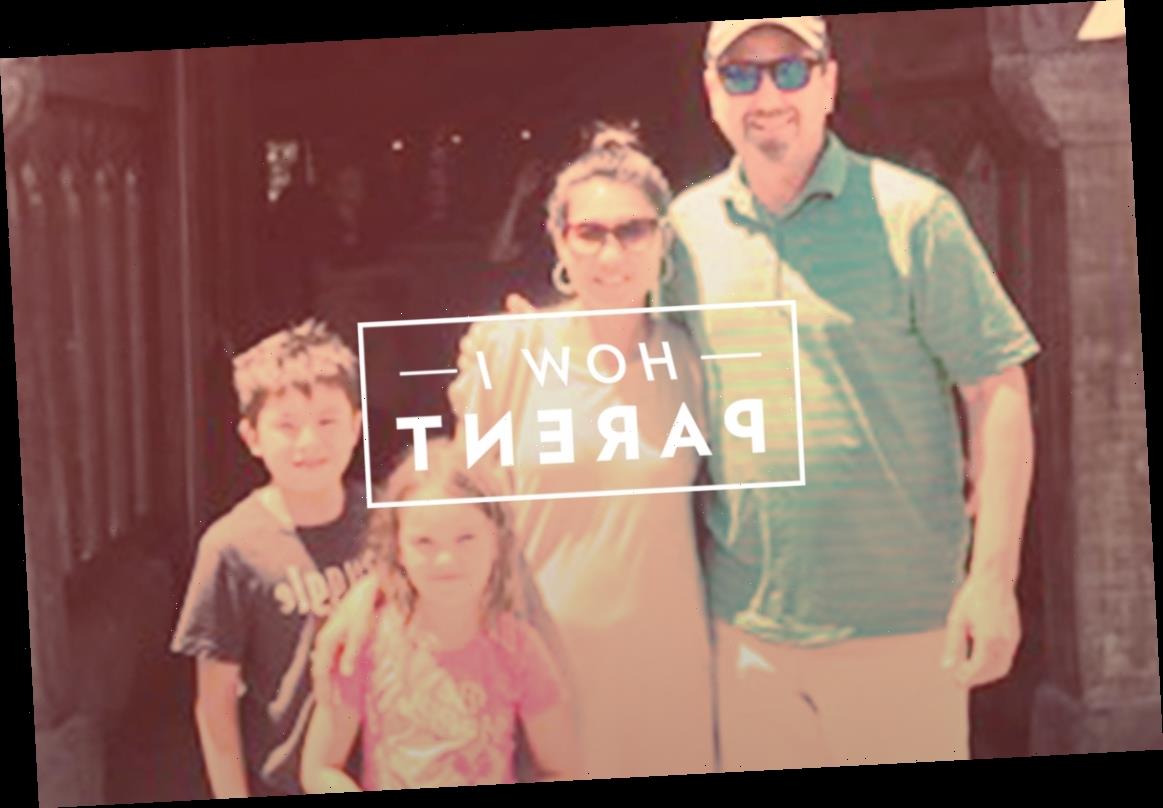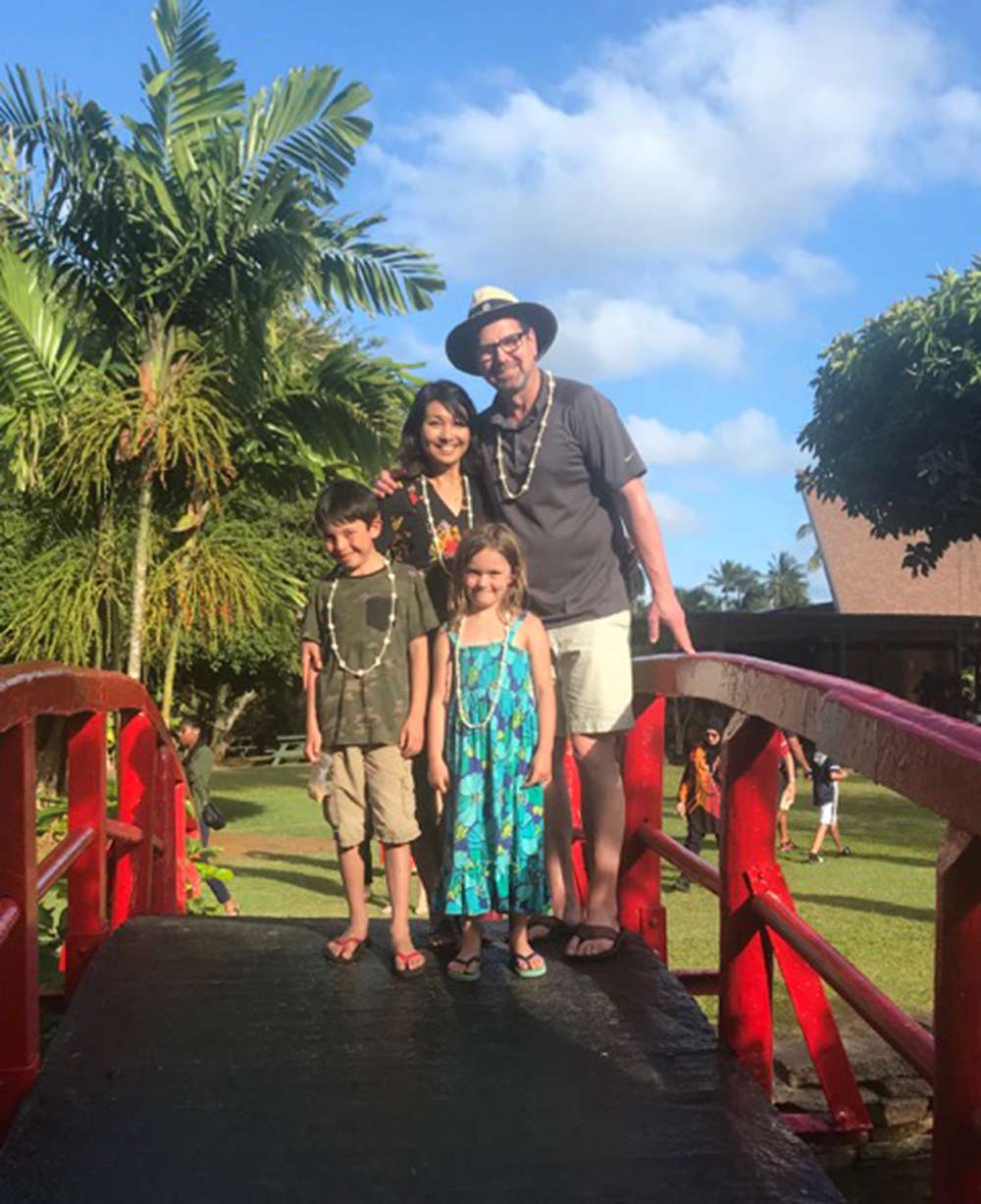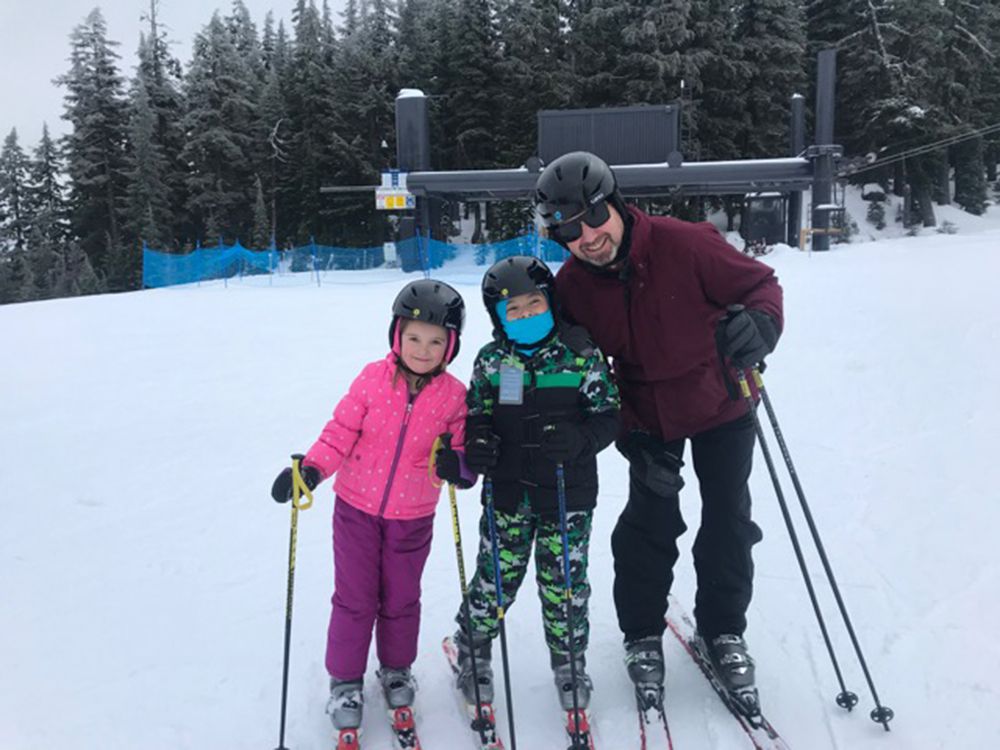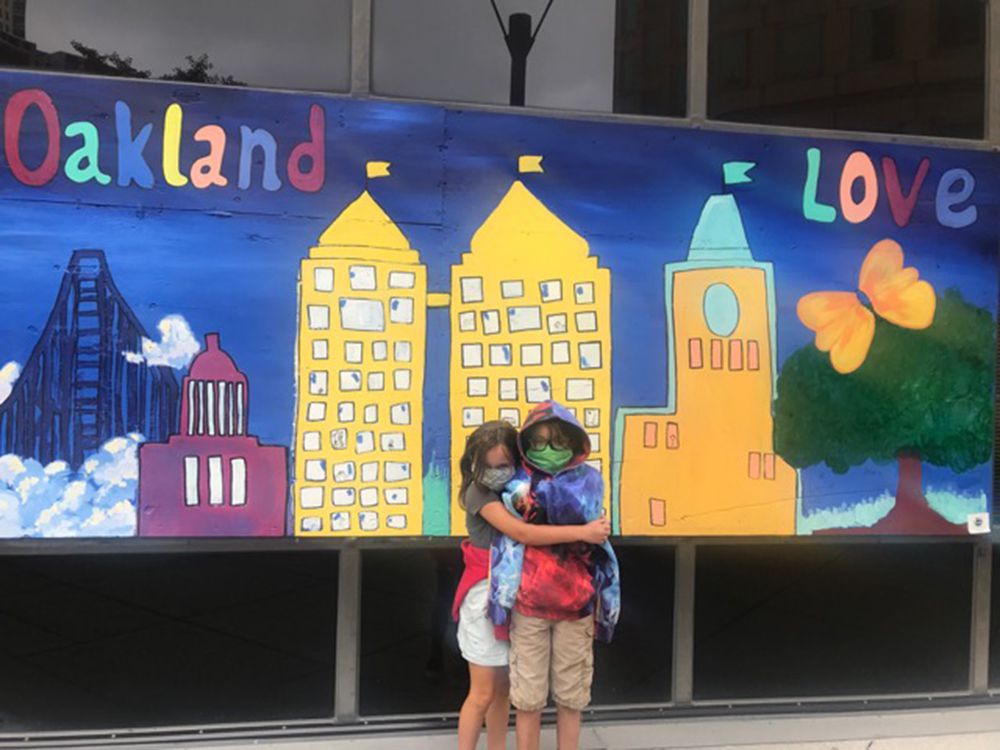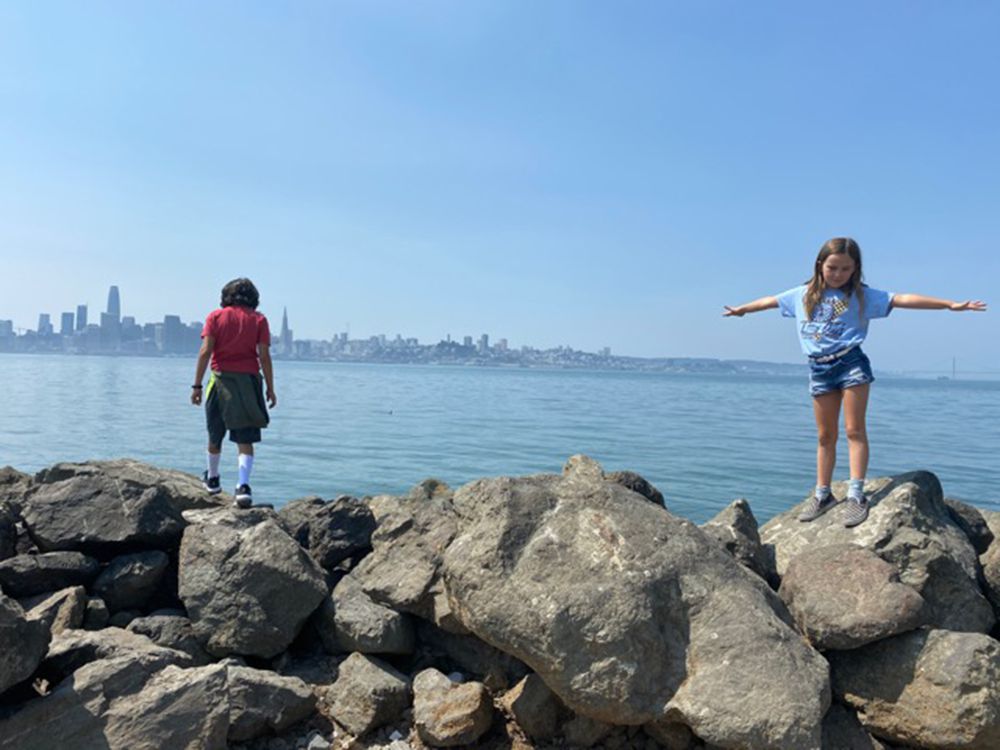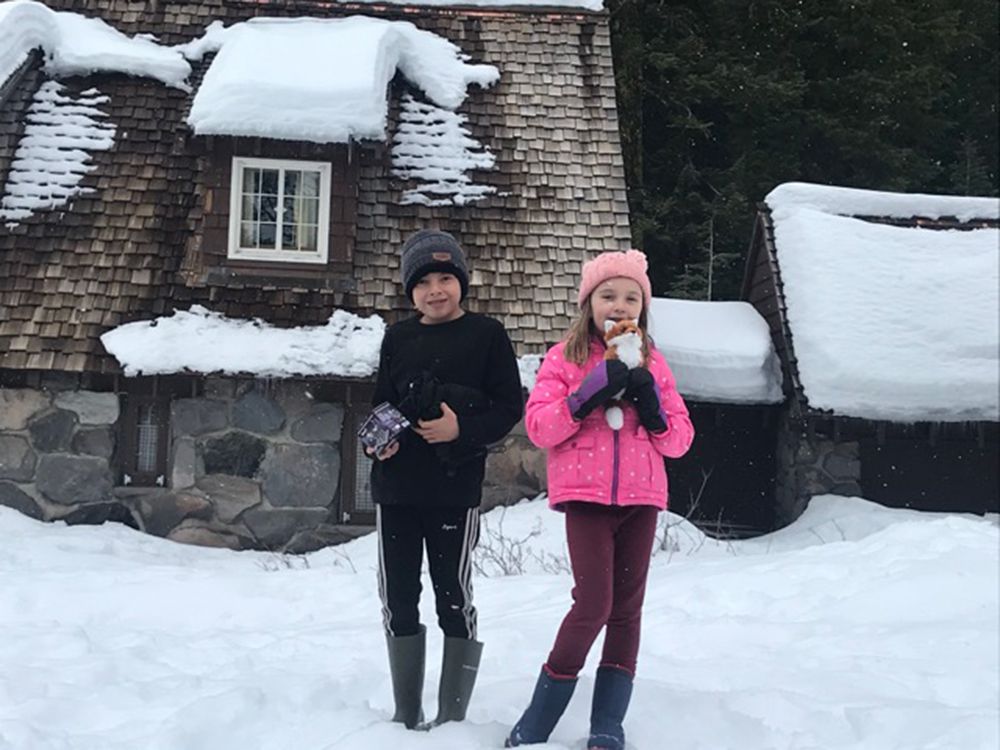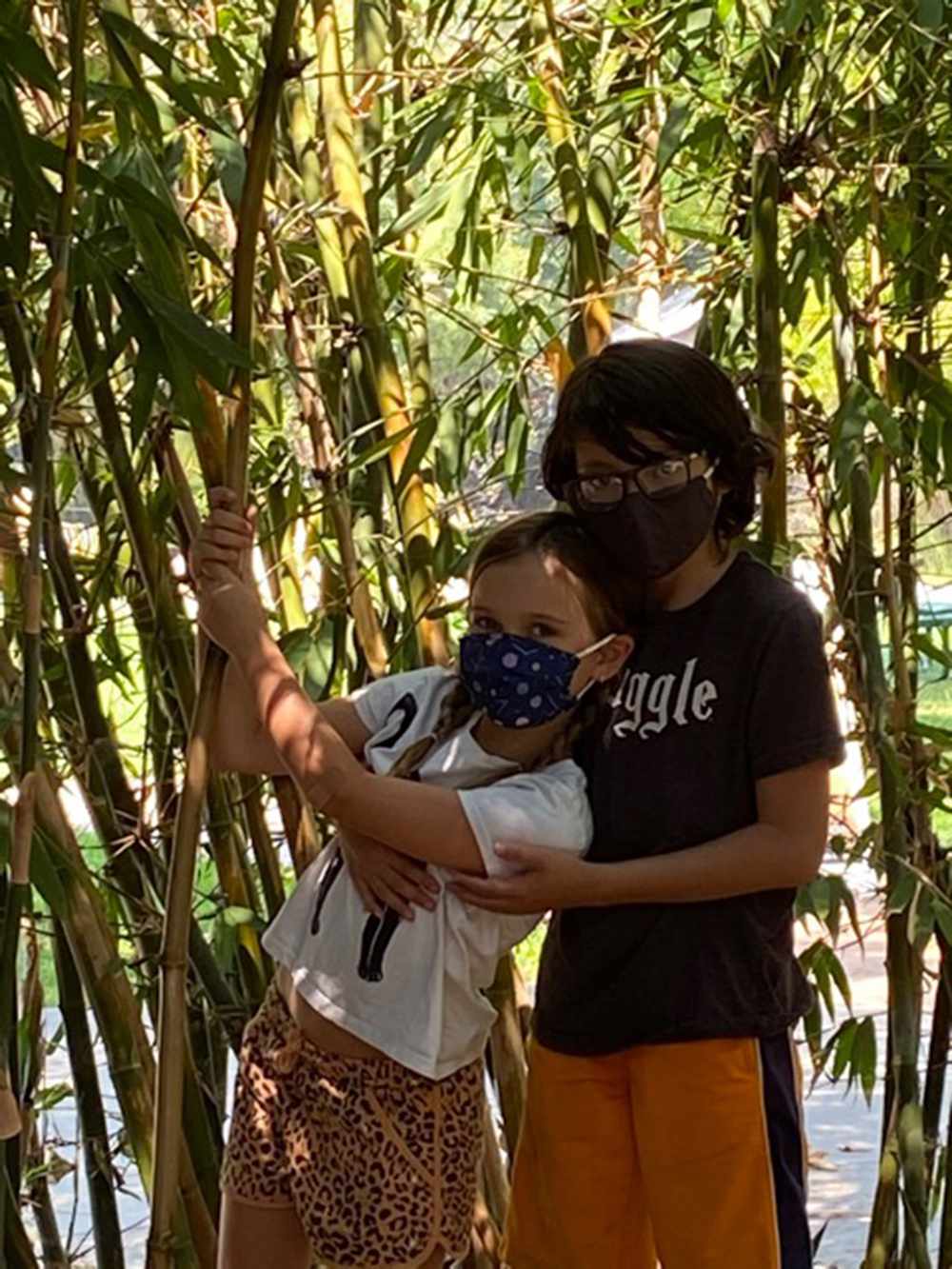Name: Angie Ho Ruhlin
Location: Danville, California
Occupation: Teacher and stay-at-home mom
Family situation: My husband Charles Ruhlin and I raise our kids, Luke, 10, and Savi, 8, along with our two shih-tzu dogs, Tater and Kiwi
Parenting “philosophy” in a sentence: We believe in guiding our kids by allowing them to make their own choices and learning from natural consequences.
What was your journey to having the family life you have today?
My husband and I met later in life through Match.com. Once we got married, we fully recognized that we may not be able to have our own biological kids. When we both felt ready, I went through two IVF cycles but neither of them took.
I was teaching at the time when I knew the second cycle was going to be our last. IVF is quite expensive and took a toll on me emotionally. One day during my prep period, my assistant principal threw out the idea of having an open adoption because his wife was the director of an open adoption agency nearby. My husband and I decided to go to an open house, which became the first step into our adoption journey. After eight and a half months of getting contacts and making calls, things were not panning out until my husband, who is a pediatric hospitalist, got the surprising news that a baby was available for adoption at the hospital he was working at.
We moved quickly to ask about adopting the baby and once we were approved, the moment felt so surreal. We were finally going to become parents to our first child. My son's ethnic background was exactly what we checked off in our boxes, too. He's Pacific Islander, Caucasian and Mexican and my husband is Caucasian and I'm Chinese. Those were the ethnicities we felt comfortable with and with no other obstacles in our way, it felt like the stars had aligned for us.
We were told that since our son's birth mom hid her pregnancy from her family, she did not want any contact. We tried to see if she was open to letters or photos when my son was 5, but she replied to the agency and said she wasn't ready. She was, however, open to the idea of getting to know him once he was older, and we fully respected that.
We adopted our daughter 28 months later and her situation was very different. Her birth mom contacted us through email directly, and she had a bunch of questions for us. I spent a couple of hours answering everything and then we flew out to meet her and her parents. She was 17 at the time and about seven months along. From there, we signed all the agreements and my daughter, who's Italian, German and Irish, was born two weeks later.
As a multicultural family, I feel fortunate because we live in the Bay Area where people are generally very forward-thinking and progressive. When my family and I moved to the U.S. from Taiwan when I was 7, I faced a lot of prejudice because I looked different from everyone else. I share my stories with my kids and also discuss the Black Lives Matter movement to teach them that prejudice can present itself in different ways — sometimes subtle, other times very blatant. We also try to honor their heritages by teaching them about their family history, and my husband has been trying to teach them Spanish as well.
Can you talk about how you handle having a daughter who is connected to her birth mom and knows her family history and having a son who does not have that knowledge and how that might make him feel?
We've always tried to navigate the situation with sensitivity. As a mom, I'm always overly concerned with my children's social and emotional development. My son was there with us when we adopted my daughter, so her birth mom has been in all of our lives. I'm very aware that he may be having complicated feelings about the situation and that his feelings may change as he gets older. I do check in with him often and I let him know that I'm always here if he needs to talk. And when he gets older, I will support him if he decides that he wants to reach out to his biological family.
How did your upbringing influence your parenting style?
My upbringing was pretty chaotic. Once we made the initial move to the U.S., my family and I proceeded to move every year after that. My family owned a restaurant and so from sixth grade, I pretty much lived there. I went home, went to sleep, went to school, and then went back to the restaurant. That was it. It was a very sheltered way of living and I knew I did not want to repeat that life. I think that is a major reason why it took me so long to settle down because I was trying to figure out what it was that I even wanted since growing up, everything was dictated to me.
I knew that when I had kids, I wanted to give them respect. I wanted their voices to be heard. My husband and I are on the same page when it comes to allowing our kids to make their own choices and having them learn from their mistakes — all within reason, of course. I also think it's really important that we model what we expect from them. We always try our best but as all parents know, every day is a learning experience for us too.
What’s your favorite thing about parenting?
I love that I get to guide these two little souls to be their best selves as much as I can. I have the opportunity to love unconditionally and to nurture my kids, who deserve all that we can give so they can be productive, socially-aware people out in society.
What’s the hardest part?
The hardest part is definitely dealing with electronics, especially during this pandemic. They have to look at screens all day for remote school so I have to figure out ways to get them off of their electronics for the rest of the day.
What's the best advice you can share with new parents?
Give yourself a break. You don't have to do everything and be everything. Allow yourself time to recuperate because you need to have a sense of balance, peace and restoration in order to be your best self, and to give your best to your kids.
What would you want your kids to say about you as a parent?
That I'm a loving, giving, nurturing parent who was always there for them.
Source: Read Full Article
